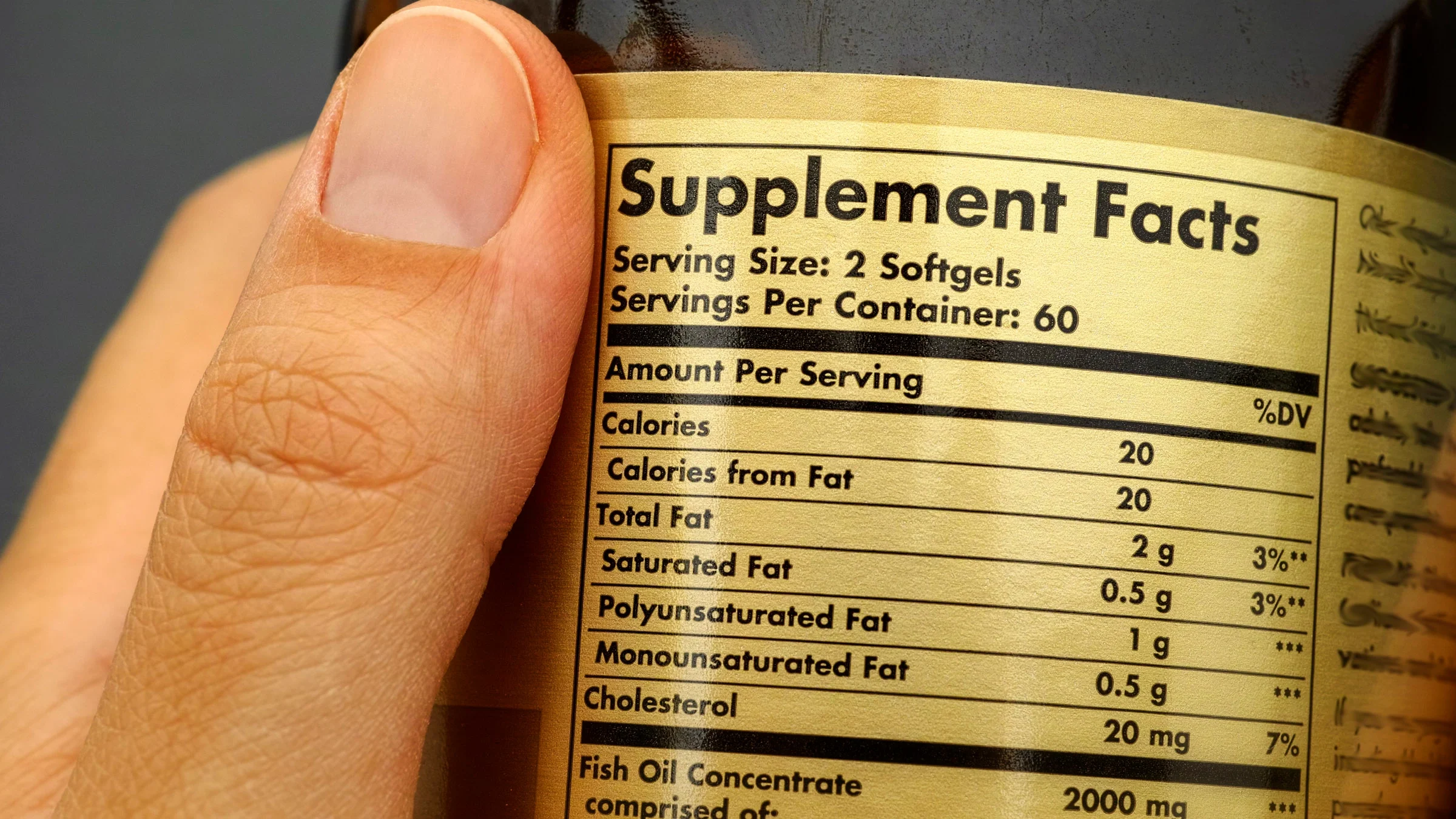Key takeaways:
If you’re eating a well-balanced diet, chances are that you don’t need a multivitamin. But if you decide to take one, it likely won’t hurt.
There are many large research studies on the potential health benefits of a multivitamin. None of them show solid evidence that multivitamins prevent disease.
Some people may be more likely to benefit from taking a multivitamin. This includes people with circumstances or conditions that affect how much nutrients they get from their diet.
Many people take a multivitamin to make sure they’re getting all the vitamins and minerals they need. It seems like an easy way to fill in any potential gaps in nutrition — especially for people who can’t always eat a balanced diet. But do multivitamins really work? Scientists have looked at whether they actually make a difference in your health. And the research might surprise you.
What are the benefits of multivitamins?
Most studies on multivitamins are designed to look at their potential benefits in specific areas.
Heart health
When it comes to multivitamins and heart health, the research findings are mixed.
Search and compare options
One large study looked at male doctors who were 40 years and older and who took a multivitamin for an average of 12 years. It made no difference in their risk for:
Heart attack
Stroke
Death from heart disease
If the doctors took the multivitamin for 20 years or more, however, they did start to see a lower risk of heart disease and stroke, according to the study.
But another study found that there may be more benefits for women. The results showed that women who took a daily multivitamin for more than 3 years had a lower rate of death from heart disease compared with those who didn’t take a multivitamin.
One large scale analysis of other studies concluded that multivitamins aren’t associated with decreased risk of heart attack, stroke, and dying from heart disease. And the United States Preventive Services Task Force does not recommend using multivitamins to prevent heart disease.
Brain health
Scientists have also looked at whether multivitamins help protect the brain — and the results are more encouraging. Several studies suggest that multivitamins may improve memory in older adults.
Read more like this
Explore these related articles, suggested for readers like you.
In one study, participants who took a daily multivitamin for 3 years had improved memory. The average age of people in this study was 73 years old.
Another study saw similar results. The group that took a daily multivitamin were better able to recall things when tested 1 year and 3 years later. The average age in this study was 71 years old.
Eye health
The research in multivitamins for eye health is also promising.
One study suggests that certain mineral supplements may help protect long-term vision.
People ages 55 to 80 years who took a daily supplement for 6 years were better able to maintain their vision. More specifically, they were less likely to develop worsening age-related macular degeneration (AMD). This daily supplement included many ingredients in a multivitamin, such as:
Vitamin C
Vitamin E
Vitamin A (beta-carotene)
Zinc
Copper
Of note, a later study found that beta-carotene wasn’t a required ingredient to achieve the effects.
Research also suggests that a multivitamin can help decrease the risk of certain types of cataracts. In one study, people ages 43 to 86 years who took a daily multivitamin for more than 10 years had a lower risk of cataracts. And another study of 15,000 male physicians showed similar benefits.
Cancer
Overall, it’s not clear if a daily multivitamin increases or decreases the likelihood of developing cancer.
One study looked at women ages 20 to 79 years who took a daily multivitamin for 10 years. The researchers found no difference in their risk of developing breast cancer.
Another study looked at men who took a daily multivitamin for more than 10 years. The study found a very small decrease in risk for cancer in general. But when the researchers tried to break that down into specific types of cancers, they couldn’t find any benefit.
One study of both men and women ages 50 to 71 years who took a daily multivitamin for 16 years showed a decreased risk of colon cancer. But the same study also found that men taking a daily multivitamin had a higher risk of prostate cancer, lung cancer, and leukemia. And women had a higher risk of head and neck cancer.
So at the end of the day, a lot more research is needed to understand how multivitamins affect cancer risk.
Are there any multivitamin side effects?
For most people, especially those who eat a regular diet, a multivitamin won’t hurt or lead to any unwanted side effects.
But in some cases, taking a multivitamin may lead to side effects. This can happen if you’re combining a multivitamin with additional vitamin supplements. Or if you’re eating a lot of one food that’s high in a certain vitamin.
In these cases, you may unintentionally overdose on vitamins. A few to watch out for include:
Vitamin D: Taking too much vitamin D can cause nausea, vomiting, loss of appetite, and dehydration from excessive urination.
Vitamin C: Excess vitamin C can cause stomach cramps and diarrhea, and in some cases, kidney stones.
Iron: Taking too much iron can lead to an upset stomach, constipation, and vomiting. It can also interfere with the absorption of zinc, another important mineral for your body.
Vitamin A: Too much vitamin A (beta-carotene) can cause headaches, nausea, blurry vision, dizziness, and achy muscles.
Vitamin A also has a few more potential health risks. Large amounts of vitamin A increases the likelihood of developing lung cancer in cigarette smokers, former smokers, and people who have been exposed to asbestos. And too much vitamin A during pregnancy has been linked to birth defects.
Should you take a multivitamin every day?
If you’re eating a healthy, balanced diet most of the time, you probably don’t need a multivitamin. Research is still very mixed on whether they work, so multivitamins may not be worth the cost or effort.
But if you’re at risk of not getting enough of a particular vitamin or nutrient, it may make sense. People who have restricted diets are at increased risk of nutrient deficiencies. For example, vegans and vegetarians who eat a plant-based diet often require extra vitamin B12. This is because B12 is mostly found in animal-source foods.
Older adults may also benefit from multivitamins because vitamin B12 absorption decreases as you age. It can also be harder for older adults to get enough vitamin D.
If you do decide that you’d like to take a multivitamin, be sure to read the label and choose one that makes sense based on your situation. For example, vitamins for older adults generally contain higher levels of vitamin B12. And prenatal supplements typically don’t contain vitamin A in its retinol form, which may be harmful during pregnancy.
When is the best time to take a multivitamin?
The best time to take a multivitamin is right before a meal or during a meal with water. This is because food helps your body absorb fat-soluble vitamins (A, D, E, and K vitamins). And water is needed to absorb water-soluble vitamins (B and C vitamins).
It’s also best to take multivitamins during the daytime, because digestion slows while you sleep. So taking it at night could affect the way you absorb the nutrients from the multivitamin.
The bottom line
Research is mixed about whether taking a daily multivitamin is good for you. Some research supports their benefit for brain and eye health. Multivitamins’ benefits in other areas — like heart health and cancer risk — are less convincing. If you’re eating a well-balanced diet, you probably don’t need to take one. But if you do, it probably won’t do any harm. If you’re worried about your risk for nutritional deficiencies, the best place to start is talking with your healthcare provider. They can help you figure out if you need any vitamins or supplements to stay healthy.

Why trust our experts?


References
Age-Related Eye Disease Study 2 (AREDS2) Research Group. (2013). Lutein + zeaxanthin and omega-3 fatty acids for age-related macular degeneration: The Age-Related Eye Disease Study 2 (AREDS2) randomized clinical trial. Journal of the American Medical Association.
Age-Related Eye Disease Study Research Group (2001). A randomized, placebo-controlled, clinical trial of high-dose supplementation with vitamins C and E, beta carotene, and zinc for age-related macular degeneration and vision loss: AREDS report no. 8. Archives of Ophthalmology.
American Academy of Ophthalmology. (2014). Long-term daily multivitamin supplement use decreases cataract risk in men.
Bailey, R. L., et al. (2015). Multivitamin-mineral use is associated with reduced risk of cardiovascular disease mortality among women in the United States. The Journal of Nutrition.
Baker, L. D., et al. (2023). Effects of cocoa extract and a multivitamin on cognitive function: A randomized clinical trial. Alzheimer's & Dementia.
Bastos Maia, S., et al. (2019). Vitamin A and pregnancy: A narrative review. Nutrients.
Blumberg, J. B., et al. (2018). The evolving role of multivitamin/multimineral supplement use among adults in the age of personalized nutrition. Nutrients.
Blumberg, J. B., et al. (2018). The use of multivitamin/multimineral supplements: a modified Delphi consensus panel report. Clinical Therapeutics.
Brissette, C. (2019). Morning or night? With food or without? Answers to your questions about taking supplements. The Washington Post.
Chan, A. L., et al. (2011). Multivitamin supplement use and risk of breast cancer: a meta-analysis. The Annals of Pharmacotherapy.
Ferraro, P. M., et al. (2016). Total, dietary, and supplemental vitamin C intake and risk of incident kidney stones. American Journal of Kidney Diseases.
Gaziano, J. M., et al. (2012). Multivitamins in the prevention of cancer in men: The Physicians' Health Study II randomized controlled trial. Journal of the American Medical Association.
Kamangar, F., et al. (2012). Vitamin and mineral supplements: Do we really need them? International Journal of Preventive Medicine.
Kim, J., et al. (2018). Association of multivitamin and mineral supplementation and risk of cardiovascular disease: A systematic review and meta-analysis. Circulation.
Lim, J. E., et al. (2022). Multivitamin use and overall and site-specific cancer risks in the National Institutes of Health-AARP Diet and Health Study. The Journal of Nutrition.
Macpherson, H., et al. (2012). Neurocognitive effects of multivitamin supplementation on the steady state visually evoked potential (SSVEP) measure of brain activity in elderly women. Physiology & Behavior.
Mares-Perlman, J. A., et al. (2000). Vitamin supplement use and incident cataracts in a population-based study. Journal of the American Medical Association Ophthalmology.
National Institutes of Health, Office of Dietary Supplements. (2021). Vitamin C: Fact sheet for consumers.
National Institutes of Health, Office of Dietary Supplements. (2022). Vitamin A and carotenoids: Fact sheet for consumers.
National Institutes of Health, Office of Dietary Supplements. (2022). Vitamin D: Fact sheet for consumers.
National Institutes of Health, Office of Dietary Supplements. (2023). Multivitamin/mineral supplements: Fact sheet for health professionals.
Niklewicz, A., et al. (2023). The importance of vitamin B12 for individuals choosing plant-based diets. European Journal of Nutrition.
Rautiainen, S., et al. (2016). Multivitamin use and the risk of cardiovascular disease in men. The Journal of Nutrition.
Ravindran, S. (2022). What the science says about the health benefits of vitamins and supplements. Time.
Stover, P. J. (2010). Vitamin B12 and older adults. Current Opinion in Clinical Nutrition and Metabolic Care.
Sunkara, A., et al. (2019). Supplemental vitamins and minerals for cardiovascular disease prevention and treatment. Methodist DeBakey Cardiovascular Journal.
Yeung, L. K., et al. (2023). Multivitamin supplementation improves memory in older adults: A randomized clinical trial. The American Journal of Clinical Nutrition.
Zhao, L. Q., et al. (2014). The effect of multivitamin/mineral supplements on age-related cataracts: A systematic review and meta-analysis. Nutrients.

















